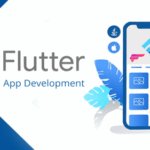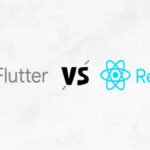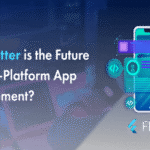Mobile AppAndroid App Development Services in Chennai: A Complete Business Guide

Table of Contents
Android dominates the Indian mobile market with over 90% market share, making it the go-to platform for businesses looking to engage a broad customer base. From B2C ecommerce platforms to internal enterprise tools, building an Android app is often the first step toward digital transformation.
If you’re searching for trusted Android app development services in Chennai, this guide will walk you through everything—from planning and budgeting to tech stacks, hiring models, and post-launch support.
Why Chennai Is the Hub for Android App Development
Chennai is home to some of India’s most innovative development teams. With a deep talent pool, competitive pricing, and expertise in mobile architecture, the city is a natural choice for building Android apps.
When you partner with a mobile app development company in Chennai, you gain:
Access to Kotlin, Java, and Flutter developers
Industry experience in ecommerce, healthcare, logistics, and fintech
Agile methodology with rapid prototyping
Why Android First Strategy Works for Indian Businesses
Android dominates mid-range and entry-level devices in India
Google Play Store allows faster app publishing than iOS
Flexible monetization via ads, freemium models, and one-time payments
More extensive reach in Tier 2 & Tier 3 cities
An Android-first strategy helps you validate product-market fit before expanding to iOS.
Android App Development Process Explained
- Requirement Gathering: Business analysis, user personas, feature list
- Design: Wireframes, material-compliant UI/UX
- Development: Native (Kotlin/Java) or cross-platform (Flutter)
- Testing: Device fragmentation testing, performance, security
- Deployment: Play Store submission with ASO
- Post-Launch: Crash analytics, feedback loop, updates
Native vs Hybrid Android Development
| Criteria | Native (Kotlin/Java) | Hybrid (Flutter, React Native) |
|---|---|---|
| Performance | High | Moderate–High |
| Cost | Higher | Lower |
| Time to Market | Longer | Faster |
| Code Reusability | Low | High (for iOS too) |
Tech Stack Used by Leading Chennai Developers
Languages: Kotlin, Java, Dart (for Flutter)
Architecture: MVVM, Clean Architecture
Databases: SQLite, Room, Firebase, Realm
APIs: Retrofit, GraphQL
CI/CD: GitHub Actions, Jenkins, Bitrise
Tools: Android Studio, Figma, Postman
Key Industries Benefiting from Android Apps
Retail & Ecommerce: Catalogs, cart systems, offers, payments
Healthcare: Appointment scheduling, health tracking
Logistics: Fleet tracking, warehouse management
EdTech: Video playback, quizzes, leaderboard tracking
Hospitality: Food delivery, booking systems, loyalty wallets
Design, UX, and Material Design Guidelines
Good design is not just aesthetic—it directly impacts usability and retention. Leading Android developers follow Google’s Material Design 3.0 principles:
Card layouts
Adaptive typography
Elevated button states
Seamless transitions
Consistent iconography
These practices ensure your app feels intuitive on every Android device.
Cost Breakdown for Android App Development
| Complexity Level | Estimated Cost (INR) | Timeline |
| Basic MVP | ₹4L–₹6L | 4–6 weeks |
| Mid-Level App | ₹7L–₹10L | 8–10 weeks |
| Enterprise App | ₹15L–₹25L+ | 12–16 weeks |
Additional costs include server setup, Google Play fees, maintenance, and 3rd-party SDKs.
Hiring the Right Development Team
Whether you’re hiring in-house or outsourcing, look for:
Proven experience in similar domains
Strong grasp of modern Android patterns
Portfolio of apps live on Play Store
Focus on testing and long-term maintenance
One of the best ways to ensure stability and scalability is to collaborate with a vendor offering end-to-end AI development services in Chennai, especially if AI is part of your roadmap.
Adding AI Capabilities to Your Android App
Modern Android apps thrive on intelligent features such as:
AI chatbots for real-time support
Personalized content suggestions
Predictive analytics
Voice commands and natural language processing (NLP)
To implement these successfully, your app architecture must support seamless integration of AI modules, both on-device and via cloud APIs.
Backend Considerations & AI Software Support
AI-powered Android apps depend on robust backend logic that can process large volumes of data and respond in real-time.
Working with an AI software development company in Chennai helps ensure your app is powered by scalable, secure, and intelligent backend infrastructure that grows with your business.
Case Studies from Chennai
Case Study 1 – Confidential (Ecommerce App)
A Chennai-based D2C brand built a native Android app with multilingual support. Results: 3x increase in average order value.
Case Study 2 – Confidential (Healthcare App)
Built with Flutter for Android-first rollout. Features included teleconsultation and lab report storage. Result: 40,000+ downloads in 3 months.
Case Study 3 – Confidential (Logistics Platform)
Fleet tracking app integrated with GPS APIs and Firebase. Result: Improved on-time delivery by 33%.
Final Thoughts + CTA
Android remains the dominant mobile OS in India—and building a robust, scalable Android app can unlock massive growth opportunities for your business. From strategy and UI/UX to AI integration and backend scalability, Chennai offers everything you need to execute your vision.
Make sure you choose a development team with the right blend of domain experience, technical skills, and a future-focused mindset. With the right partner, your Android app can evolve into your most powerful digital asset.
FAQs
1. What’s the ideal budget for an Android app in 2025?
₹5L–₹12L for most B2C and SMB use cases; ₹15L+ for enterprise features.
2. How long does it take to launch an MVP?
4–6 weeks with a clear scope and wireframes ready.
3. Should I build native or go with Flutter?
Flutter is ideal for cost and time efficiency; native is better for performance and OS-level features.
4. Can I launch AI features in phase 2?
Yes. Plan for modular architecture so AI can be layered later.
5. Will the app be future-proof for Android updates?
Yes, with proper SDK usage, modular code, and support from experienced developers.




